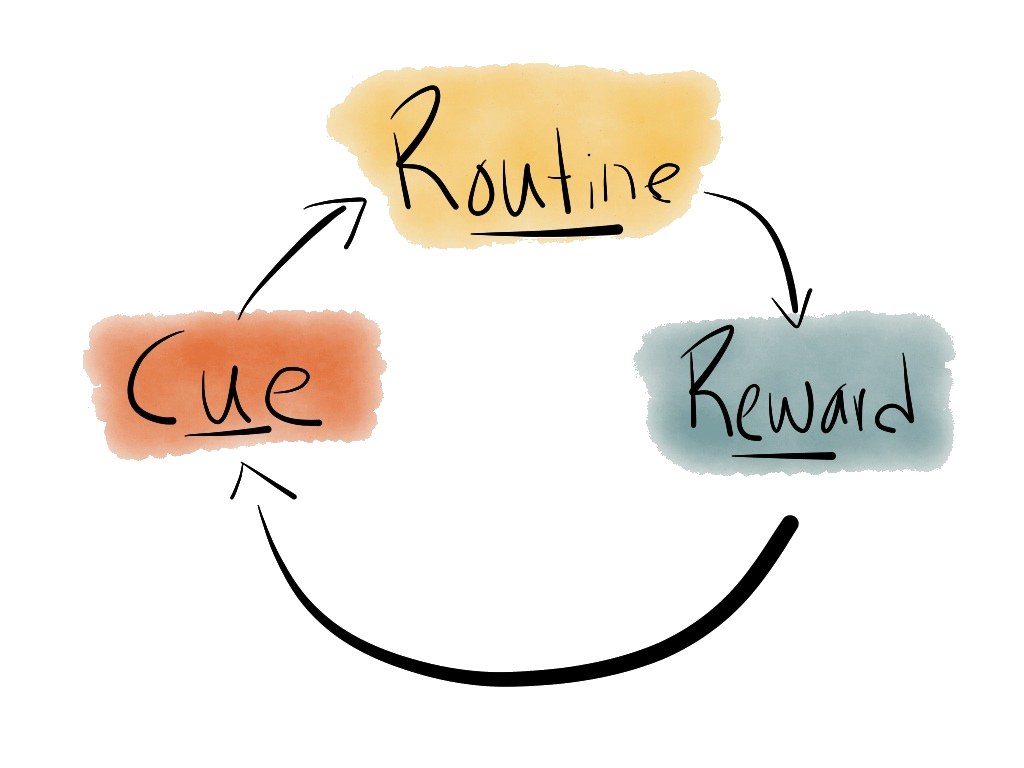What activities do you do every day? What are those tasks that, if you don’t get to them on a given day, can make you feel incomplete?
For me, it’s exercise. I’ve battled weight problems my entire life. Early in my career, my jobs took care of my fitness requirements. Running around a theme park in 100+ degree weather for 10 hours while wearing professional attire is better than cardio. But, when I went “backstage,” I started to spend a lot more time sitting down, and my fitness suffered as a result.
Then I found Shaun T and Insanity. I must have watched that infomercial (below) 100 times before deciding to jump in. It was a GREAT decision. Within 3 months, I developed a near-obsession with daily workouts. I’d often do 45 minutes of interval training in the morning and another 30 minutes after coming home from work. I was in the best shape of my life. My food choices improved. I had more energy. I slept better. It was all thanks to my new (keystone) fitness habit.
My Insanity experience got me thinking about the power of habits and how they applied to my work. People often fail to exercise because competing life priorities get in the way. Similarly, we often let immediate tasks get in the way of our long-term career development. Days can quickly fly by as we tackle problem after problem, and fitting traditional learning experiences into our already crammed schedules is nearly impossible. This situation is exacerbated in frontline roles, where employees don’t have control over how their time is spent. And, because many of these jobs are paid hourly, employees are often not permitted to complete development activities away from the workplace.
Interval training with Insanity showed me the results I could get in 30 to 45 minutes, as long as I did it every day. Unlike taking a trip to the gym, this fit easily into my day and didn’t require extra resources. I woke up with my alarm (cue). The calendar told me which video to watch, so I didn’t have to put too much thought into it (routine). And I felt better and better as a result of completing the cycle (reward). That’s how habits work. But how can we take lessons from the concept of interval physical training and apply them to continuous professional development in the workplace?
 I subscribe to the 70/20/10 philosophy that you learn most of what you know by doing – not training. However, experience has also showed me that you don’t learn EVERYTHING you need just by doing the job. Exceptions arise. Knowledge is forgotten. And your current job doesn’t always prepare you for the next role. We need to commit regular, focused, structured time to learning – just like exercise. This activity must be simple enough to foster a learning habit but also effortful enough to generate the necessary reward and complete the loop. The idea of a daily learning habit also aligns with evidence-based principles, such as spaced practice. It’s already how people learn. We just need to align our tactics to the reality of both learning science and workplace context.
I subscribe to the 70/20/10 philosophy that you learn most of what you know by doing – not training. However, experience has also showed me that you don’t learn EVERYTHING you need just by doing the job. Exceptions arise. Knowledge is forgotten. And your current job doesn’t always prepare you for the next role. We need to commit regular, focused, structured time to learning – just like exercise. This activity must be simple enough to foster a learning habit but also effortful enough to generate the necessary reward and complete the loop. The idea of a daily learning habit also aligns with evidence-based principles, such as spaced practice. It’s already how people learn. We just need to align our tactics to the reality of both learning science and workplace context.
Here are a few ideas on how you can foster a habit of daily learning in your organization.
Look for Minutes, Not Hours
Workplace learning tends to represent a big lift. Employees have to be scheduled for multi-hour classes, causing a major disruption to the operation. This can also be true of digital learning experiences, which require people to step away from their work for 30+ minutes. Rather than looking for hours once in a while to deliver large chunks of content, search for minutes instead. Assess how employees regularly use their time. Find those few minutes before the shift begins or right after lunch break that represent potential learning moments. Design your content solutions to fit into those minutes. Completing a 3-minute scenario every few days can be a lot more powerful than reviewing a 30-minute eLearning once per quarter. But your solution must be simple, easy to access and fit nicely into the available time to foster a daily learning habit.
Leverage Existing Habits
Try to piggyback onto existing activities that employees already complete every day. For example, if employees clock in at the start of their shift, can you attach a quick reinforcement exercise to that moment? Or, if employees attend a daily huddle, can you work with managers to add a brief reflection activity to the meeting notes? Rather than trying to get people who have built and refined their workplace habits over the years to do something completely new, introduce small adjustments that are more easily adopted and iterated over time.
Complete the Habit Loop
Exercise is undeniably good for you. So why don’t people do it? Part of the challenge is the placement of the reward in the habit loop. With fitness, the reward is significantly delayed. By nature, people tend to prefer rewards that arrive sooner than later, regardless of importance (hyperbolic discounting). The same idea can be applied to professional development, especially for topics that take considerable time to master. Therefore, when trying to establish a daily learning habit, you can’t solely rely on learning as the reward. Yes, every learning experience must have a direct connection to the individual and their performance/aspirations, and the long-term reward will be improved performance. You should also consider applying motivational tactics that can support habit development by acting as as short-term rewards while development iteratively progresses. This is where well thought out game mechanics can be extremely impactful. By introducing factors such as progress, recognition and (in some cases) competition, you can bolster a sense of accomplishment that comes directly from daily learning activities. As the habit develops, these tactics may continue to prove worthwhile and/or give way to more long-term rewards on the job.
My interest in habits has benefitted me both personally and professionally over the past several years. My work on microlearning and adaptive learning with Axonify gives me the chance to apply habit-based principles with organizations across a variety of use cases and industries. If you’re interested in learning more about habits, check out The Power of Habit: Why We Do What We Do in Life and Business by Charles Duhigg.



